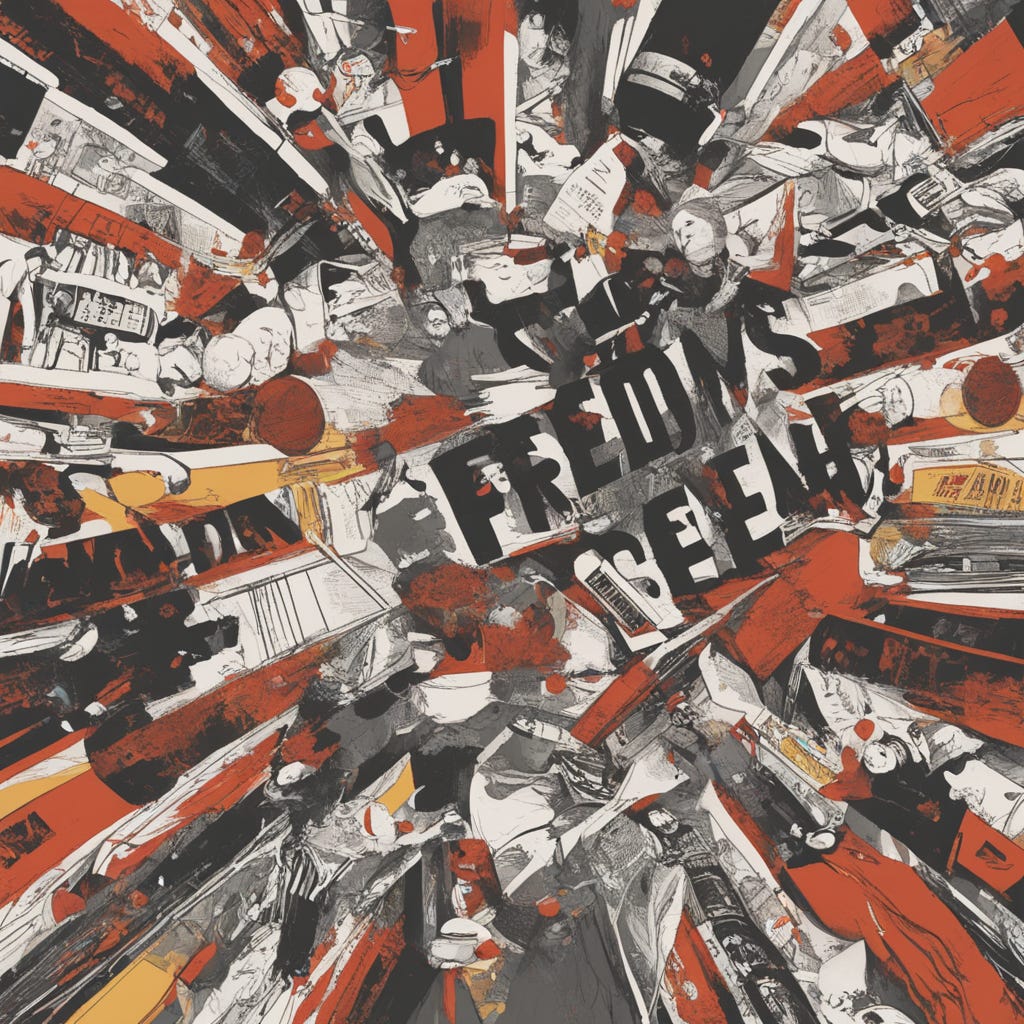Notes from the edge of civilization: Oct. 22, 2023
What you can do to fight for freedom of speech. What the World Health Organization is really up to. And, From Ancient Greece to Big Pharma: A brief history of propaganda.
This week a diverse group of ‘thought leaders’, including journalists, authors, filmmakers, technologists, and academics released The Westminster Declaration to Dismantle the Censorship-Industrial Complex. The signers of the short treatise state:
Coming from the left, right, and centre, we are united by our commitment to universal human rights and freedom of speech, and we are all deeply concerned about attempts to label protected speech as ‘misinformation,’ ‘disinformation,’ and other ill-defined terms.
This abuse of these terms has resulted in the censorship of ordinary people, journalists, and dissidents in countries all over the world.
Such interference with the right to free speech suppresses valid discussion about matters of urgent public interest, and undermines the foundational principles of representative democracy.
In the interest of ensuring a world where children do not grow up to live in fear of speaking their minds, the signatories call for the following three actions:
We call on governments and international organisations to fulfill their responsibilities to the people and to uphold Article 19 of the Universal Declaration of Human Rights (UDHR) [which states 'Everyone has the right to freedom of opinion and expression; this right includes freedom to hold opinions without interference and to seek, receive and impart information and ideas through any media and regardless of frontiers.'].
We call on tech corporations to undertake to protect the digital public square as defined in Article 19 of the UDHR and refrain from politically motivated censorship, the censorship of dissenting voices, and censorship of political opinion.
And finally, we call on the general public to join us in the fight to preserve the people's democratic rights. Legislative changes are not enough. We must also build an atmosphere of free speech from the ground up by rejecting the climate of intolerance that encourages self-censorship and that creates unnecessary personal strife for many. Instead of fear and dogmatism, we must embrace inquiry and debate.
Read the declaration here: https://westminsterdeclaration.org and share it with others you know. Remind them that if we care to preserve our democratic society, it is our responsibility to fight for free speech, to welcome and engage in debate with people who don’t share our views, and to recognize when narratives are being deployed to control and divide us.
The authors of the Westminster Declaration call the Universal Declaration of Human Rights “a clear and robust international protection for free speech.” They also note that the U.S. First Amendment is a strong protector of the right to freedom of speech, of the press, and of conscience.
In one of the most important First Amendment cases of our times, this week we learned that the Supreme Court has decided to hear the case of Missouri v. Biden, which pits the Attorneys General of Missouri and Louisiana against the Biden administration. The federal government is accused of promoting social media censorship of COVID- and elections-related discussions.
“Government censorship of private speech is antithetical to our democratic form of government,” wrote Justice Samuel Alito.
The censorious war on so-called “disinformation” is being fought on many fronts. Last month, the Council on Foreign Relations (CFR) issued a report entitled ‘Negotiating Global Health Security Priorities for U.S. and Global Governance of Disease’. In it, the authors state that the world can learn lessons from the COVID-19 pandemic, which “could revolutionize global health security, but the window for change is closing—quickly.” The authors suggest that countries take critical steps, including “countering misinformation and disinformation” to ensure global health security.
Health security, to be clear, is entirely different from health, and organizations like CFR and the World Health Organization (WHO) seem to have little interest in the latter, as we noted earlier this week.
READ MORE:
To go even deeper into this topic, be sure to watch our latest podcast with guest James Roguski, who helps us better understand what the WHO is really interested in achieving.
WATCH NOW:
Censorship usually goes hand-in-hand with propaganda in an effort to craft and maintain a particular narrative. While many people think of more modern examples like Soviet Russia or Communist China when they hear the word ‘propaganda’ — it actually dates back much farther. And it is still alive and well in the corporate world today, as we detailed in a story on Collapse Life this week.
READ MORE:
No doubt in an effort to shore up sliding Tesla stock prices on the recent Q3 profit miss, one of our favorite tech, space, communication, and transportation charlatans, Elon Musk, tweeted this on his X platform (did he X-it?):
We emptied the entire drum magazine of a Tommy gun into the driver door Al Capone style. No bullets penetrated into the passenger compartment.
— Elon Musk (@elonmusk) October 20, 2023
Which begs the question: why? What exactly is he anticipating that would require his pickup truck — if you can call it that — to have to withstand bullets? Or need to have armored glass? If we look beyond the obvious PR stunt, the messaging is not exactly hopeful for the future. Prepare accordingly.



